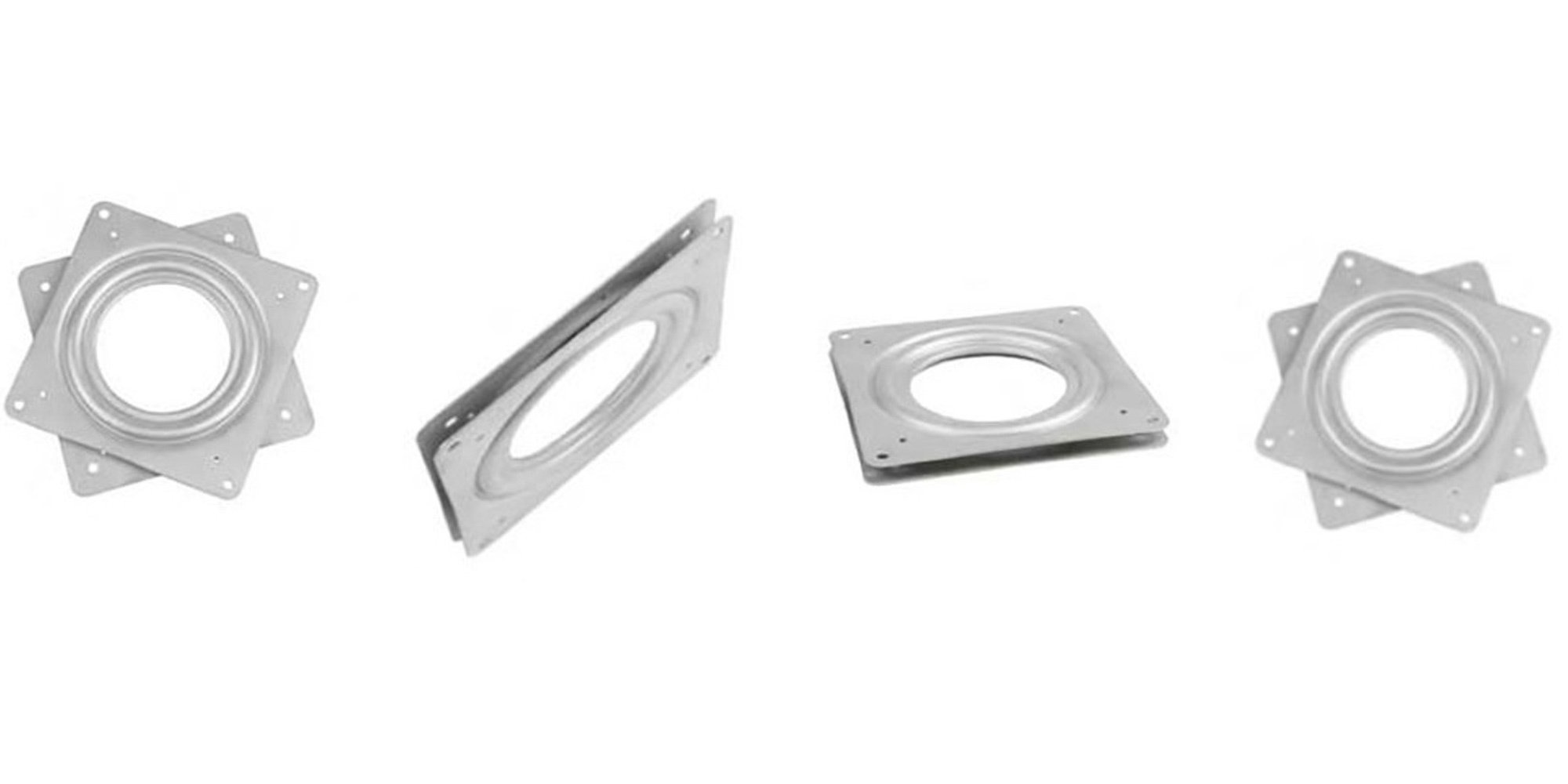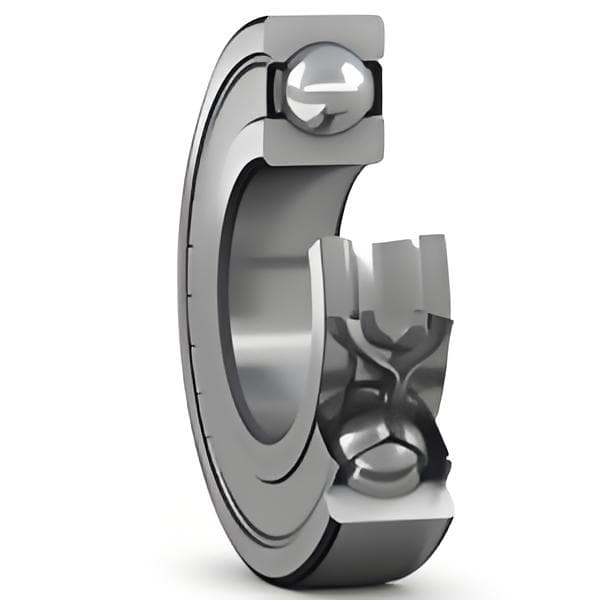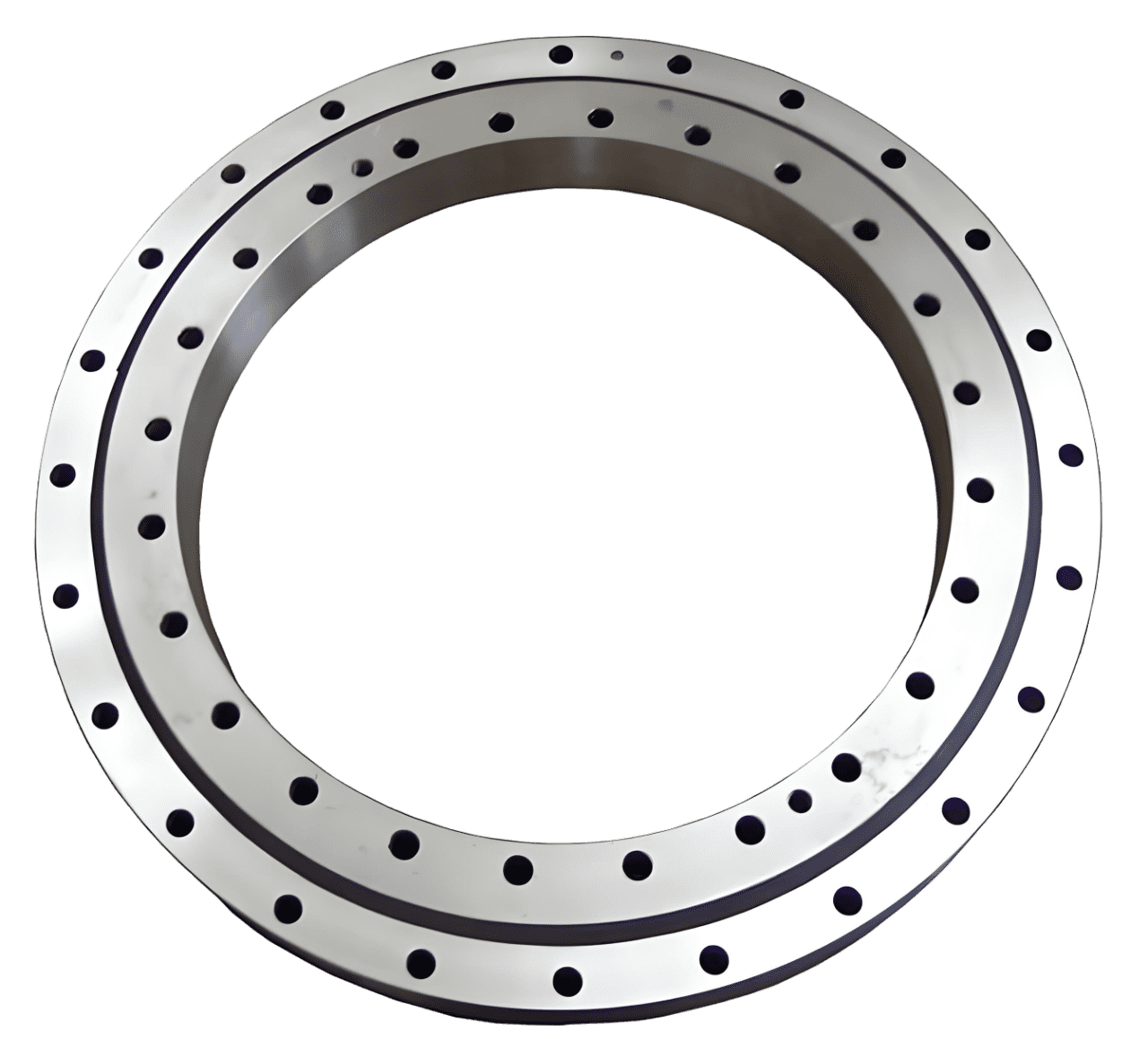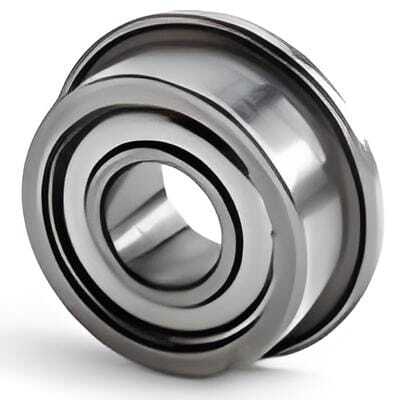How Do I Choose a Slewing Bearing?
Slewing bearings, also known as slew bearing or slewing ring bearings, facilitate pivotal movement in machinery, handling axial, radial, and moment...

Table of Contents
Turntable bearings are crucial in many fields like construction and robotics. They make sure that equipment can rotate smoothly and steadily. These bearings are utilized in applications such as cranes and robotic arms, which require the capability to rotate a full 360 degrees.
In this blog post, we shall conduct an in-depth examination of turntable bearings. We'll discuss their key features, the advantages they offer, where they're used, how to choose the right ones, how to keep them in good shape, and why they're so important.
Turntable bearings, are designed for smooth, 360-degree rotation. They're essential for tasks that involve heavy load or need precise placement. These heavy-duty bearings help things move while supporting axial, radial, and moment loads.
Turntable bearings are made of a few key parts that make them work well:
The choice of material for turntable bearings is critical and depends on the application. Common materials include:

Turntable bearings smoothly axial and radial loads by spreading them out across their parts. They can handle everything from heavy to light loads, fitting both large machines and sensitive tools. Their strong build ensures stability and longevity, making them great for all kinds of uses.
The deeper race grooves provide a larger contact area for the rolling elements, which enhances load distribution and durability. This feature is vital for machinery and display equipment that require constant, smooth and continuous turning.
The ability to rotate smoothly and reliably is what makes turntable bearings essential in these high-demand environments. It helps keep things moving smoothly and with less wear and tear. This is extremely important for long-lasting performance in applications such as construction cranes, radar systems, and rotating stages in theaters.
Turntable bearings use strong materials like steel and aluminum to last longer. Steel is great for heavy loads and durability, while aluminum is lighter and good for places where weight matters. The right material helps bearings work well in different conditions, from outdoor cranes to indoor machinery.
Maintenance-free turntable bearings require little to no upkeep. In contrast, bearings that need lubricating require regular maintenance to work their best. Keeping them lubricated helps them last longer and perform better. To ensure these bearings work well for a wide range of applications, they need to be well-maintained. If not, they might wear out quickly and won't perform effectively.
That's why, while bearings you don't have to maintain are really convenient, taking a bit of time to look after the ones that need lubrication can make them last longer and handle tougher jobs better.
Lazy Susan bearings are ideal for lightweight applications, such as furniture and show shelves. They're simple to install, making them a good pick for home use.

Crossed roller bearings are crucial in high-precision turntables because of their high load-bearing capacity and rigidity.
These bearings have rollers that cross each other at 90-degree angles. This special design lets them handle all kinds of loads at the same time while working accurately. These bearings are made from strong materials like AISI 52100. They're compact yet can handle heavy loads without bending much. They're great for space-constrained applications in medical and robotics fields where precision is key.

Turntable bearings support rotating platforms, handling radial and axial loads with precision. Slewing bearings accommodate complex loads in heavy duty machinery, allowing controlled rotation.
Turntable bearings and slewing ring bearings are often considered as one and the same because they both allow 360-degree rotating motion and can handle pushing and pulling forces, as well as tilting actions.
In general, turntable bearings and slewing bearings share the following characteristics:
Turntable bearings and slewing bearings are both ideal for machines that require high precision, like computer-controlled machines and machining centers.
These bearings can handle lots of weight coming from different directions, making them perfect for big construction machines like diggers and cranes.
These bearings keep things spinning with great accuracy and steadiness, which is just right for situations where you need everything to be perfectly controlled.
Capable of working in harsh environments for a long time.
They often come with holes for mounting, and sometimes with gears on the inside or outside, which make it easier to install them and transmit power.
Although these two kinds of bearings can handle all sorts of loads, they have their own unique bearing designs, uses, load capacities, precision, and the ability to adapt to environment.
|
Feature |
Turntable Bearings |
Slewing Bearings |
|
Focus |
High-precision applications (e.g., machine tools) |
Heavy-duty applications (e.g., construction machinery) |
|
Design Variants |
Not specified |
Four-point contact ball bearing, eight-point contact ball, cross roller, triple-row cross roller slewing bearing , thrust ball slewing rings, and customized slewing bearings. |
|
Composition and Capabilities |
Precision rotation, radial and axial load support |
Worm gears, housings, motors, withstand axial, radial forces, and overturning moments |
|
Application |
Light to medium equipment |
Heavy machinery |
|
Load Capacity |
Moderate |
High |
|
Precision |
Moderate |
High |
|
Flexibility Across Environments |
Low to Moderate |
High |
Think of the spinning tray in a Lazy Susan or the parts that let wind turbines and cranes turn smoothly. Lazy Susans are a kind of turntable bearing used in furniture. Slewing bearings are what you'd see in larger machinery, like the moving bits of a crane or the part that catches the wind energy in a turbine. Both types of bearings are all about making things spin with ease and stability.
Turntable bearings are commonly found in household items such as Lazy Susan rotating tables and display stands. They allow these furniture pieces to spin smoothly, making it easy to access items from any angle. This feature enhances convenience, especially in places where reaching across a large table can be cumbersome.
Turntable bearings let you spin the table top to easily get the things you want without stretching or moving your chair. This is a handy feature they offer in everyday life.
Turntable bearings play a key role in big work places like cranes and wind turbines. They help things move just right and can carry a lot of weight. Because they last a long time, they don't break easily, which means less fixing and more working. They're what make robots and heavy machinery work well and last long.
These bearings are used in medical tools, like CT scanners, and in machines that produce things with high precision. They need to be extremely accurate and always dependable, which is essential for keeping people safe and making good products.
When selecting a turntable bearing, it is essential to consider its load capacity, which refers to the amount of weight it can support. Also, think about where the bearing will be used. Will it be outside and face different kinds of weather, or is it for inside use? Consider the rotation speed—it needs to match the task's pace. Picking the right material and design is key, as they affect performance and service life.
Picking the wrong bearing or ignoring upkeep can lead to breakdowns, costly repairs, and even accidents. To avoid this, always match the bearing to your needs: consider the load, environment, and speed.
Keeping up with maintenance, such as looking for signs of wear and making sure it's clean, helps make it last longer and ensures your machinery keeps running well
Turntable bearings are essential components in numerous applications, from everyday household products to heavy industrial machinery. They play a vital role because of their ability to support rotation while handling significant loads. To make sure your turntable bearings are the best they can be and last a long time, it's important to know what kind you need for each job. Besides, regular maintenance and proper installation will help them work at their peak.

Slewing bearings, also known as slew bearing or slewing ring bearings, facilitate pivotal movement in machinery, handling axial, radial, and moment...

Bearings ensure the smooth operation and long life of mechanical components. Kaydon Bearings are known for their high performance and versatility....

Crane slewing bearings are essential parts that let cranes make their full 360-degree turns. This ability is crucial for handling various lifting...